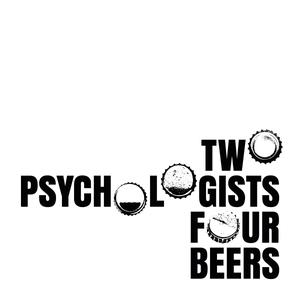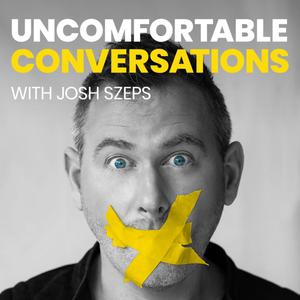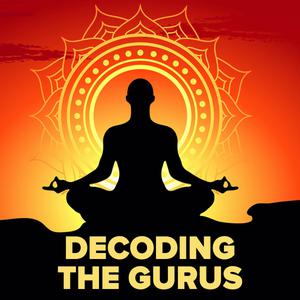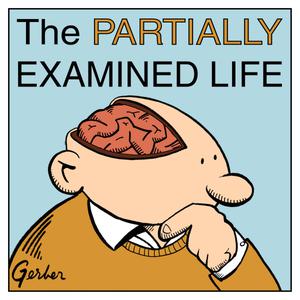
Two Psychologists Four Beers
Yoel Inbar, Michael Inzlicht, and Alexa Tullett
- 1 hour 27 minutesEpisode 116: Can We Do Science Without Ideology? (with Moin Syed)
Cultural and developmental psychologist and open science advocate Moin Syed joins the show to talk what he thinks people get wrong about ideology, diversity, and open science. We talk about what role, if any, researchers' ideology should play in their science, and what it means when people describe psychological research as "ideological." In the second half of the show, we talk about what people get wrong about preregistration, and why it seems some misconceptions just won't die. We also talk about Moin's attempt to correct some misinformation (it did not go that well), and some local beer history.
Special Guest: Moin Syed.
Links:
- You Also Have an Ideology
- So Useful as a Good Theory? The Practicality Crisis in (Social) Psychological Theory - Elliot T. Berkman, Sylas M. Wilson, 2021
- Two Psychologists Four Beers Episode 100: What Happened at Perspectives on Psychological Science?
- Preregistration: More Promises than Pitfalls
- Why Are All the Black Kids Sitting Together in the Cafeteria?: And Other Conversations About Race: Tatum, Beverly Daniel: 9780465060689: Amazon.com: Books
- A Brief Note on Intellectual Sloth; or, Are 70% of U.S. Faculty Really Adjuncts?
- Hinds - En Forma - YouTube
23 January 2025, 4:00 am - 1 hour 11 minutesEpisode 115: What's Wrong with Living in a Bubble? (with Mickey Inzlicht)
Occasional co-host Mickey Inzlicht joins the show to talk about the 2024 election, Bluesky, and his crusade against yard signs. We discuss prediction markets, Democratic declines with non-college voters, and whether Bluesky is a political bubble (and if so, if there's anything wrong with that). Also, Mickey explains his problem with yard signs and defends his beer snobbery.
Links:
4 December 2024, 2:00 pm - 1 hour 15 minutesEpisode 114: Psychology Worth Doing (with Paul Bloom)
Paul Bloom joins the show to talk about a recent paper in which he argues that much of developmental psychology is not worth doing. We also talk about where he thinks psychology has succeeded, and whether we should be more skeptical of progressive-friendly social science findings. Plus: is it ever a good idea to tell your friend that the person they're dating is bad for them?
Special Guest: Paul Bloom.
Links:
- Non-Zero Podcast (Post-Election Reflection with Paul Bloom)
- Much of developmental psychology is not worth doing | Theory and Society
- Psychology is ok - by Paul Bloom - Small Potatoes
- Progressives should worry more about their favorite scientific findings
- Psych: The Story of the Human Mind: Bloom, Paul: 9780063096363: Amazon.com: Books
- International Music - Im Sommer bin ich dein König - YouTube
11 November 2024, 12:00 pm - 1 hour 9 minutesEpisode 113: The Road to Cincinnati (with Adam Mastroianni)
Researcher and writer Adam Mastroianni joins the podcast to talk about why he left academia, what conventional scientific research might be missing, and how he ended up writing a succesful science blog instead of more journal articles. Plus: what is a Science House? How do we know that psychology is making progress? And should scientific fraud be a crime?
Special Guest: Adam Mastroianni.
Links:
21 October 2024, 11:00 am - 1 hour 49 secondsEpisode 112: All About ADHD (with Amori Mikami)
University of British Columbia professor and ADHD expert Amori Mikami joins the show to talk attention-deficit/hyperactivity disorder (ADHD). What is it, how has our understanding of it changed over the years, and how accurate is the public discourse about it?
Plus, some more on Yoel's own ADHD journey and a quiz where we establish how many of Yoel's annoying behaviors are ADHD-related.
Special Guest: Amori Mikami.
Links:
2 September 2024, 3:00 pm - 1 hour 1 minuteEpisode 111: We Are So Back
Mickey joins Yoel for the first new episode in nearly a year. We talk what's been up with the show, plans for the future, and what it feels like to briefly be (almost) internet-famous.
In the second half of the show, we talk about expertise and prediction. When social scientists make predictions about the future, should we listen? How much should failures of prediction make us distrust expert advice more generally, and if so, how skeptical should we be?
Links:
- D.E.I. Statements Spark Debate at UCalifornia and Other Universities - The New York Times
- Americans harbor much less favorable explicit sentiments toward young adults than toward older adults | PNAS
- On the accuracy, media representation, and public perception of psychological scientists' judgments of societal change - PubMed
- When expert predictions fail - ScienceDirect
- Amyl and The Sniffers - "U Should Not Be Doing That" (Official Music Video) - YouTube
31 July 2024, 10:00 am - 1 hour 21 minutesEpisode 110: RE-RELEASE: Destigmatizing Mental Health (with Andrew Devendorf)
Andrew Devendorf joins Alexa and Yoel to discuss his work on "me-search" (or self-relevant research) within clinical psychology. He talks about the prevalence of mental health difficulties within the field, and the harmful taboos against speaking openly about them. And, he shares his own reasons for studying depression and suicide, and how he has been discouraged from citing personal experience as a motivation for his work. Their conversation also explores common misconceptions about mental illness, strengths of self-relevant research, and ways to be more supportive to those facing mental health challenges. In the end, Yoel and Alexa fail to resolve their debate about the existence of the "unbiased researcher."
Special Guest: Andrew Devendorf.
Links:
- Andrew Devendorf, M.A.
- PsyArXiv Preprints | Stigmatizing our own: Self-relevant research (Me-search) is common but frowned upon in clinical psychological science
- PsyArXiv Preprints | Is "me-search" a Kiss of Death in mental health research
- Only Human: Mental-Health Difficulties Among Clinical, Counseling, and School Psychology Faculty and Trainees - Sarah E. Victor, Andrew R. Devendorf, Stephen P. Lewis, Jonathan Rottenberg, Jennifer J. Muehlenkamp, Dese’Rae L. Stage, Rose H. Miller, 2022
- My Brother Went Missing, And The Search For Him Turned My World Upside Down | HuffPost HuffPost Personal
- NADA SURF - where is my mind? (Official Video) - YouTube
4 October 2023, 10:00 am - 1 hour 23 minutesEpisode 109: RE-RELEASE: Against Mindfulness
Playing devil's advocate, Yoel and Mickey mount a criticism against the scientific study of mindfulness. What is mindfulness? Can we measure it? Is mindfulness-based therapy effective? Can mindfulness improve the quality of attention beyond the meditation cushion? Are effects of mindfulness mostly placebo effects produced by motivated practitioners and adherents? Should we be impressed by mindfulness meditation’s supposed effects on conceptions of the self? Is mindfulness, in all its complexity, amenable to scientific study?
Bonus: Is the value of diversity and inclusivity a core part of open science?
This is a re-release of an episode first released on August 7, 2019.
Links:
- Burdock Brewery
- Lunch Money | Collective Arts Brewing
- PsyArXiv Preprints | Will this time be different?
- Opinion | Can We End the Meditation Madness? - The New York Times
- The benefits of being present: mindfulness and its role in psychological well-being - PubMed
- Mind the Hype: A Critical Evaluation and Prescriptive Agenda for Research on Mindfulness and Meditation - PubMed
- Argentine tango dance compared to mindfulness meditation and a waiting-list control: a randomised trial for treating depression - PubMed
- Meditation Programs for Psychological Stress and Well-being: A Systematic Review and Meta-analysis | Complementary and Alternative Medicine | JAMA Internal Medicine | JAMA Network
- Mindfulness training affects attention--or is it attentional effort? - PubMed
- Meditation, mindfulness and executive control: the importance of emotional acceptance and brain-based performance monitoring - PubMed
- Cognitive effects of MBSR/MBCT: A systematic review of neuropsychological outcomes - PubMed
- Mindfulness training as cognitive training in high-demand cohorts: An initial study in elite military servicemembers - PubMed
- A randomised active-controlled trial to examine the effects of an online mindfulness intervention on executive control, critical thinking and key thinking dispositions in a university student sample | BMC Psychology | Full Text
27 September 2023, 9:00 pm - 1 hour 23 minutesEpisode 108: RE-RELEASE: We Need to Talk About Fraud
Yoel and Alexa are joined by Joe Simmons to talk about fraud. We go in-depth on a recent high-profile fraud case, but we also talk about scientific fraud more generally: how common is it, how do you detect it, and what can we do to prevent it?
This is a re-release of Episode 73, originally released on September 29, 2021.
Special Guest: Joe Simmons.
Links:
- Beers - Drav
- Milkshake IPA - Microbrasserie Vox Populi - Untappd
- A-OK IPA - Avondale Brewing Co. - Untappd
- L'Espace Public – Brasseurs de quartier » L’attaque galactique
- False-Positive Psychology: Undisclosed Flexibility in Data Collection and Analysis Allows Presenting Anything as Significant - Joseph P. Simmons, Leif D. Nelson, Uri Simonsohn, 2011
- [98] Evidence of Fraud in an Influential Field Experiment About Dishonesty - Data Colada
- Dan Ariely Retracts Honesty Study Based On Fake Data
- [85] Data Replicada #4: The Problem of Hidden Confounds - Data Colada
- [40] Reducing Fraud in Science - Data Colada
- The Clash - Police & Thieves (Official Audio) - YouTube
20 September 2023, 10:00 am - 1 hour 7 minutesEpisode 107: Against Anti-DEI Rhetoric
Jennifer Gutsell joins Alexa to discuss the controversy surrounding Yoel's experience interviewing at UCLA. They focus on a post, written by Alexa, in which she pushes back against defenses of "viewpoint diversity" and argues that the graduate petition advocating for diversity, equity, and inclusion (DEI) was a brave effort that should be taken seriously. Jennifer elaborates on these ideas, suggesting that there are some views that are not up for debate, and emphasizing the care that is required when having theoretical discussions without a personal stake in the matter. Alexa and Jennifer go on to connect these ideas to a paper written by Kevin Durrheim in which he proposes that psychology's emphasis on our progressive accomplishments silences the deeper reality of racism within our field.
Special Guest: Jennifer Gutsell.
Links:
- Two Psychologists Four Beers on Untappd
- Against Anti-DEI Rhetoric (Alexa's Post)
- Conversational Silencing of Racism in Psychological Science: Toward Decolonization in Practice - Kevin Durrheim, 2023
- Episode 263: Free Yoel | Very Bad Wizards podcast
- A Political 'Dress' and Test - by Matthew Lieberman
- A review of White‐centering practices in multiracial research in social psychology - Garay - 2021 - Social and Personality Psychology Compass - Wiley Online Library
30 August 2023, 10:00 am - 1 hour 8 minutesEpisode 106: We Need to Talk About Fraud Again
Harkening back to episode 73, Alexa and Yoel discuss recent evidence of fraud documented in the Data Colada blog post "Clusterfake." The post is the first in a series of four, which will collectively detail evidence of fraud in four papers co-authored by Harvard Business School Professor Francesca Gino. First, the co-hosts dive into the details, with Alexa soberly (in both senses of the word) explaining the revelations of calcChain. They go on to discuss the potential impact of these findings for collaborators, some of whom have begun conducting audits of work co-authored with Gino. In addition, they speculate about ways to reduce fraud that could relieve some of the burden from those who currently do this time-consuming and often thankless work. Finally, they consider what this means for a field still struggling to build a more trustworthy foundation.
Links:
- Two Psychologists Four Beers on Untappd
- [109] Data Falsificada (Part 1): "Clusterfake" - Data Colada
- Sci-Hub | Signing at the beginning makes ethics salient and decreases dishonest self-reports in comparison to signing at the end. Proceedings of the National Academy of Sciences, 109(38), 15197–15200 | 10.1073/pnas.1209746109
- Two Psychologists Four Beers Episode 73: We Need to Talk About Fraud (with Joe Simmons)
- Juliana Schroeder on Twitter: "I am waiting to learn more about this case. It is extremely concerning. My coauthors and I are auditing our papers with Francesca, and identifying the raw data files. I think (hope) other co-authors are doing likewise. We will announce the results of the audit when they are ready" / Twitter
- Fleetwood Mac - Little Lies (Official Music Video) - YouTube
23 June 2023, 3:00 pm - More Episodes? Get the App
Your feedback is valuable to us. Should you encounter any bugs, glitches, lack of functionality or other problems, please email us on [email protected] or join Moon.FM Telegram Group where you can talk directly to the dev team who are happy to answer any queries.
 Uncomfortable Conversations with Josh Szeps
Uncomfortable Conversations with Josh Szeps
 Decoding the Gurus
Decoding the Gurus
 The Ezra Klein Show
The Ezra Klein Show
 The Partially Examined Life Philosophy Podcast
The Partially Examined Life Philosophy Podcast
 The Wright Show
The Wright Show
 Very Bad Wizards
Very Bad Wizards